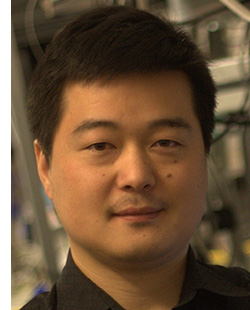
Many recent Ph.D. students would like to land a faculty position at a university or research institute soon after graduating. However, there are only a few of these opportunities available every year. For each opening, there will likely be many qualified applicants from all over the world, with very strong CVs and publication records. In this climate, it is extremely challenging to break into academia immediately following grad school, and so a postdoctoral position has become an important springboard to a tenure-track academic job.
For the past four years, I was a postdoctoral research fellow in two Canadian photonics research groups: the Microwave Photonics Research Laboratory at the University of Ottawa, under the supervision of Jianping Yao, and the Ultrafast Optical Processing group at the Institute National de la Recherche Scientifique (INRS), under the supervision of José Azaña. My time as a postdoc has been a great experience that others could benefit from as well, and so here I provide my personal perspective and advice about how to find and take advantage of a postdoctoral position.
Find the right match for your research interests. A postdoctoral research contract is usually for about two years. Due to this short timeline, professors are looking to hire researchers who can be immediately involved in the research activities of the group and make meaningful contributions, particularly in the form of journal publications or conference presentations. The capability of the postdoc to bring new ideas into ongoing projects is critical to hiring professors when they are assessing candidates.
Use your network. A nice recommendation letter from someone who is familiar with the professor with whom you’d like to work can play a key role in successfully applying for a postdoctoral position. Professors often approach friends and colleagues to recommend a candidate who has the necessary background and capabilities. Try to take advantage of your existing connections, and work to broaden your network in addition to strengthening your CV.
Hone your communication skills. In Canadian labs, a postdoc serves as the liaison between students and the professor. In addition to working on his or her own research, a postdoc also assists the professor in guiding students, scheduling experiments, arranging group meetings, etc. Therefore, interpersonal skills are crucial, in and out of the lab. I learned these abilities from my two supervisors and practiced them throughout my time in Canada. Now, I use these important skills when working with my own students in China.
Seek out useful collaborations. On a related topic, it is important to take advantage of opportunities to form helpful relationships between different research labs. A postdoc must be able to negotiate and communicate with the people in other groups in order to complete projects in the most effective way. These collaborative experiences not only helped me to finish some of my most interesting research, but also to build a large professional network—which can be even more important in the long-term.
Although it can be difficult to get the tenure-track position that you’re hoping for immediately after finishing your Ph.D., don’t be discouraged. There are many valuable skills that you can learn as a postdoctoral researcher, and this experience will put you on the right track to accomplish the rest of your career goals.
Dr. Ming Li (ml@semi.ac.cn) is a full professor at the Institute of Semiconductors at the Chinese Academy of Sciences.
